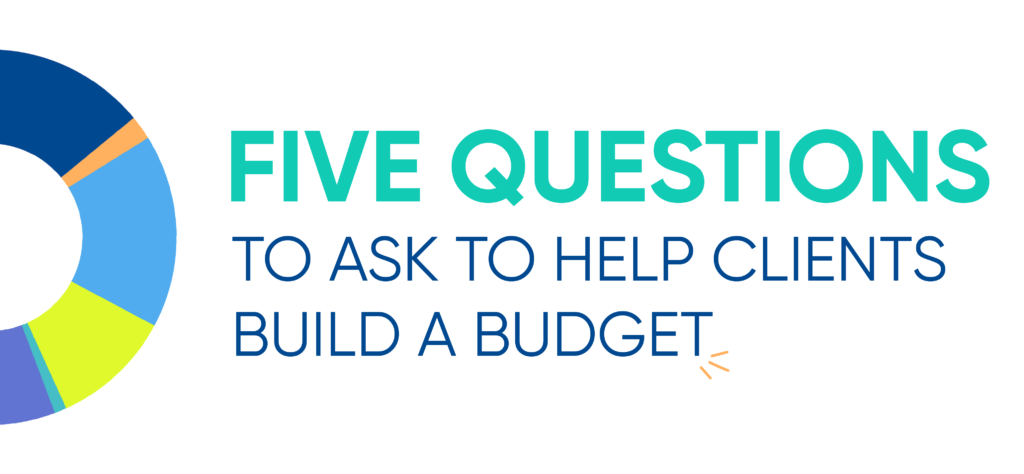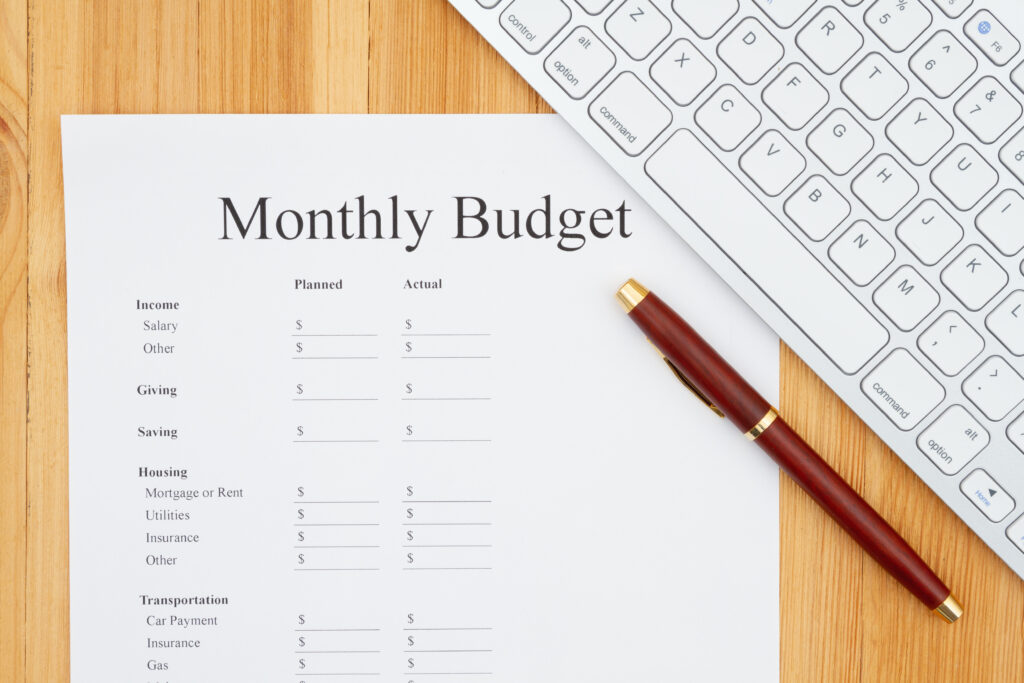5 Questions to Ask to Help Clients Build a Budget

When it comes to personal finance, having a budget is essential. In fact, budgeting often seems so “basic” to us that we often assume our clients already have a budget.
But that’s not always the case! In fact, many people come to us initially because they want help building a budget. Maybe they’ve tried budgeting before and always given up. Or perhaps they just aren’t sure what a budget is supposed to look like.
Either way, one of the best things we can do as financial planners is help clients build a budget! So, what’s the best place to start? Like most aspects of financial planning, budgeting should start with a conversation to help you understand your client’s needs and goals. Use these questions to start a productive discussion.
Question 1: What are you doing now?
Before you can start working toward a new budget for your clients, take a minute to talk about what they’re doing now. Do they have a budget? Is it working for them? If they do have a budget that’s working well, that’s great! You might take a few minutes to look over their budget and then move on to other aspects of their financial plan.
But if they don’t have a budget (or they don’t like the system they have), then that’s where you start. You can ask follow-up questions about what aspects of their budget they like or don’t like, and then use that information when you start to help them create a new budget.
Question 2: What have you done in the past?
Most people — especially those who are meeting with a financial planner — have tried budgeting before. So talk about it. This is your chance to find out what they’ve tried in the past and why it didn’t work.
And maybe there were things that did work. The answers to these questions may not be completely negative. For example, maybe your client really loved the budgeting app they were using. The problem was that the budget they created just wasn’t sustainable with their current resources.
Or the opposite could be true. Perhaps you have a client who has been able to create a realistic budget in the past. But they didn’t stick with it because they couldn’t find a software, app, or spreadsheet that they enjoyed using. Get a little more info about what worked or didn’t, so you can figure out what to do differently this time (maybe suggest BudgetingBlocks™).

Question 3: How are your accounts set up?
It’s often easier to build a budget if you know exactly how a client’s accounts are organized. Do they have multiple checking or savings accounts? Do they share accounts with their partner or not? Do they prefer to manage their finances online via a computer or mobile device? Or are they sticking with paper statements and cash?
You need to know how a client’s accounts work so you can recommend the right budgeting approach. For example, if they aren’t comfortable sharing login information with a third party, then they probably wouldn’t enjoy using a budgeting app.
So figure out how all their accounts are organized. Then, you can help them develop a budgeting plan that’s as simple and efficient as possible.
Question 4: What does budgeting mean to you?
The idea of a “budget” can mean different things to different people. Some people view it as a rigid plan, and they spend time every day logging their transactions and checking to make sure they’re following the plan.

For others, a budget is more like a set of basic guidelines. They see those categories and limits as “goals,” but they might not stick to them each month. Or maybe they do want to stick to those goals, but they forget to check in with their budget until the month is over.
Find out what “budgeting” means to your clients. Then you can work with them to make a plan that fits how they see their finances.
Question 5: How strict do you want your budget to be?
This is a natural follow-up to the previous question because it relates to how your clients view their budget. Do they want something they need to follow to the letter? Or are they looking for something a little more relaxed?
Now that you have your clients’ answers to all these questions, you can work with them to build a budget that fits their goals, needs, and lifestyle. Remember, clients aren’t likely to stick with a budget that doesn’t align with their goals or match how they see their finances. The budget you help them build should be realistic for them to follow while still allowing them to make progress on their goals.
Success is all about the fundamentals
When we get a new client, it can be so easy to just jump into the deep end of retirement planning and investment strategy. Those things are exciting! But most clients won’t be able to make progress on those types of goals unless they have a budget in place.
So start there! Use open-ended questions to understand how your clients think about budgeting and what kind of approach would work for them.

Then, you can work together to build a budget they’re likely to follow.
Want more tips like this to help you serve your clients better? Join Amplified Planning. You’ll get to see videos of real-life client meetings — including discussions about budgets and other aspects of financial planning. Plus, you can network with other financial planners and get professional deliverables you can use in your own practice.
Subscriptions start at just $30. Find out more and join today!
